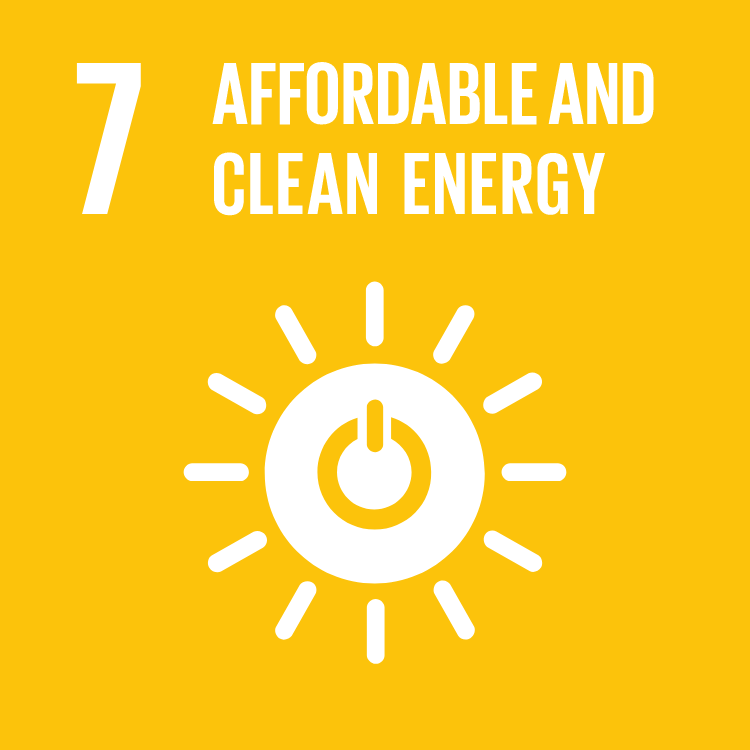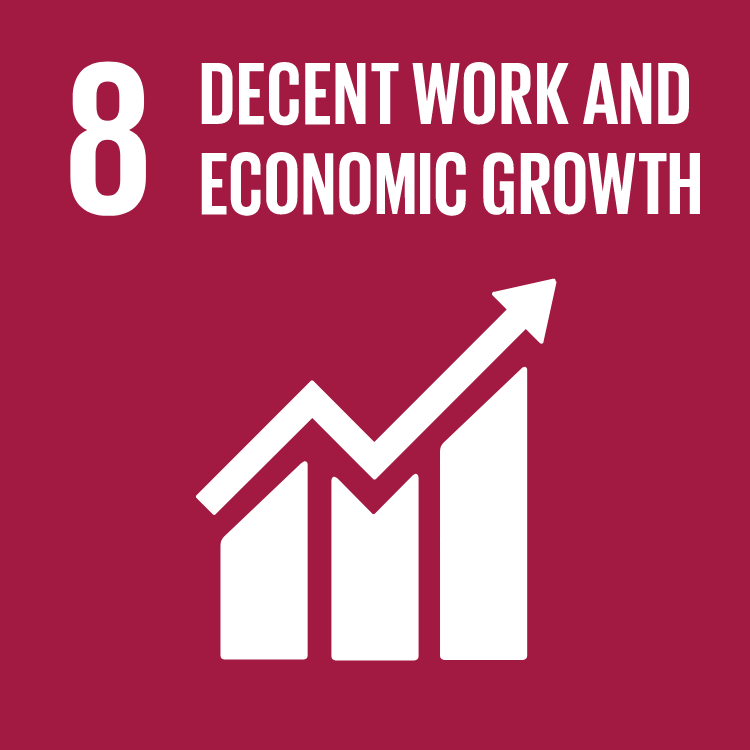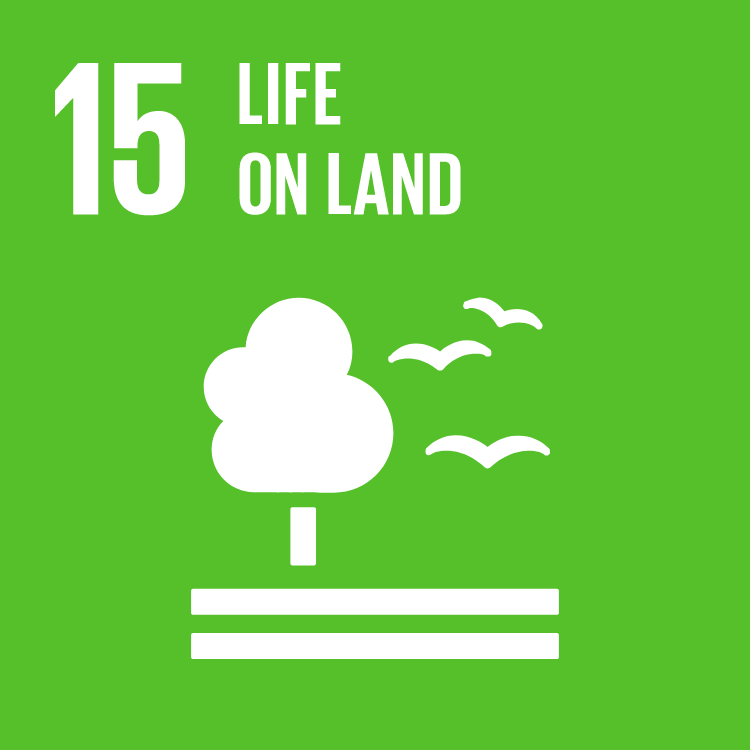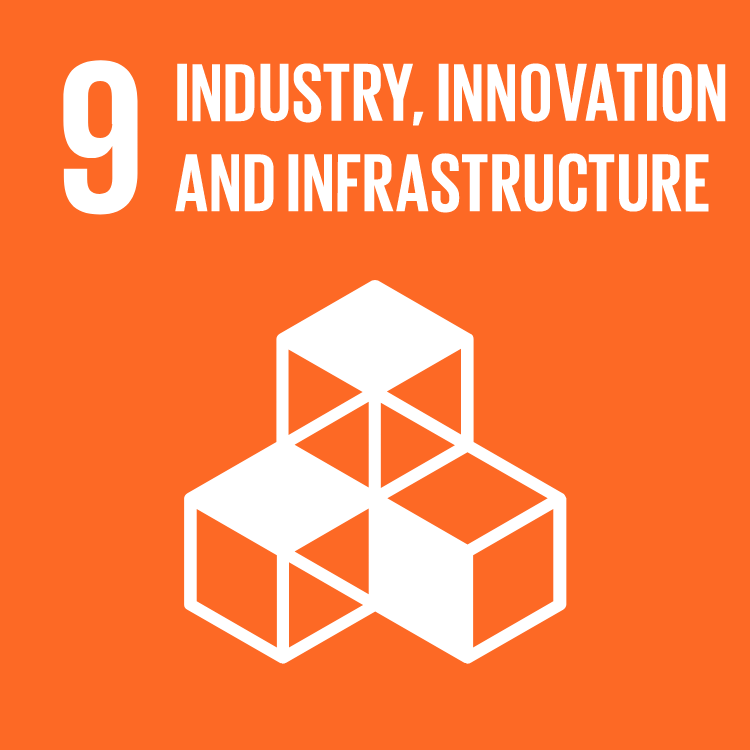SUSTAINABILITY
- TOP
- SUSTAINABILITY
To realize a society where each and every one can continue to 'live'
by utilizing renewable energy
Fostering self-sustainability in the Village* is crucial to ensure the essential needs of the community are met and that future generations can continue to thrive in the region. This will also have a positive impact on the relationship between urban and rural areas. Additionally, we aim to provide solutions to overseas regions facing similar social issues, in order to become "GLOCAL" - creating a "GLOBAL (world) from a LOCAL (region)". This approach will help us build a sustainable society from the local community.
*Please note that we use the term "Village" when describing a concept known as "Genkai shuraku".
This concept refers to villages that are incapable of supporting themselves independently, hence making them non-sustainable.
Sustainability Governance
- HD Board of Directors
-
- HD Executive Committee
-
- Sustainability Committee
-
- (Secretariat) Sustainability Promotion Group
Sustainability Committee is the body governing the integration of sustainability all throughout GPSS's business activities. The committee is chaired by the Representative Director and CEO of GPSS Holdings Inc., and its members consist of the HD Executive Committee including the Chief Sustainability Officer.
Sustainability Promotion Group acts as the secretariat of the Sustainability Committee, which leads and promotes various sustainability activities to facilitate and coordinate all relevant divisions of GPSS Group. The group is led by the Chief Sustainability Officer.
ESG Policy
Our mission is to increase local sustainability through renewable energy projects which utilize local resources, and to help solve the social issue of a stable supply of renewable energy, hence creating a sustainable society beginning from the local communities.
To fulfil our vision, we need to address individual environmental, social, and governance issues through our day-to-day business activities. In addressing these specific ESG issues, we have formulated our ESG Policy, which sets out the material issues based on the following fundamental understanding:
- Appropriate management of adverse effects of products/services on the environment (air, water, soil, etc.) and ecosystems to achieve sustainable growth in harmony with the natural environment and future generations.
- Environmentally friendly initiatives such as energy conservation and greenhouse (GHG) gas emission reduction, effective use of resources and reduction of waste, proper management of chemical substances and pollutants, water resource management and water conservation.
- Protection of fundamental human rights of employees, subcontractors, and suppliers while ensuring a healthy, safe, and comfortable working environment.
- Respect for diversity and inclusion and equal opportunities.
- Compliance with laws, regulations, and industry standards relating to the prevention of bribery, strengthening corporate governance, cyber security, and protection of information.
- Strongly encourage stakeholders, particularly subcontractors, suppliers, etc., to respect the same standards.
Materiality Process
STEP1Selection ofIssues
We created a comprehensive long list of environmental, social and governance issues important and relevant to GPSS Group. In the identification of issues from a long-term perspective, we have used globally recognised ESG benchmarks such as CDP, and global sustainability reporting standards such as SASB, Sustainalytics, UNEP FI, TCFD and GRI. These sustainability standards also helped us assess how we are contributing to the UN SDGs through our business activities.
STEP2Prioritization ofIssues
After engagement with both internal (employees) and external stakeholders (residents of local communities, etc.), we prioritized our material issues. In accordance with the principle of double materiality, we assess material issues by evaluating from (1) the degree of impact our business activities have on our stakeholders and society (importance to stakeholders) and (2) the degree of impact on the sustainability of our business performance and results (importance to GPSS).
STEP3Engagement ofManagement
We ensure on-going full integration of the ESG policy and each respective material issue in our corporate strategy through seeking the executives' input at all levels. Through punctual information and frequent dialogues, we also establish a thorough in-house understanding and company-wide adoption of the policy.
STEP4Monitoring andReporting
Once the ESG policy is finalized and KPIs are set, we closely observe the set targets through ongoing data monitoring in collaboration with correspondent divisions. The Sustainability Promotion Group routinely reports performance and progress towards the targets set through both internal and public information disclosure. In addition, GPSS will review the selected 9 material issues considering the changes in environment and the demands of society, as necessary.
Materiality chosen by GPSS
Based on the Materiality Process, we have selected 9 material issues.
Formation of joint businesses with local communities
Importance to stakeholders
Our purpose (raison d'être) is to realize a sustainable society from the local community. Through joint projects with local communities, we utilize untapped local resources for renewable energy projects and use the proceeds to stimulate local communities to become more sustainable. Furthermore, we believe that by building trusting relationships with local communities, and appropriately addressing stakeholder’s issues and needs, we can foster a sustainable ecosystem for local communities and residents.
Importance to GPSS
We engage in joint ventures with a unique business model that aligns with the local communities. Through our ethical practices not to the detriment of those who are in the local area and matching their needs with potential energy resource, we not only increase the number of projects we can develop, but also enhance the likelihood of their successful implementation. By adhering to this approach, we secure the possibility of further expansion of renewable energy.
| KPIs | Results | Targets | ||
|---|---|---|---|---|
| FY2022 | FY2023 | FY2024 | FY2025 | |
| Number of joint projects with local communities(1) | 4 | 8 | 4 | 35 |
| Potential Capacity (MW)(1) | 75 | 122 | 52 | 67 |
Note: Results are rounded up to the nearest unity.
Past results are subject to change depending on the status of the projects.
(1)Excluding PV projects but including agrivoltaics projects
Consideration for the local natural environment
Importance to stakeholders
The natural environment is an important shared resource utilized and managed by local communities and residents. We have strict standards concerning the surrounding natural environment and the ecosystem in our development and EPC projects (installation and construction of power generation and other related facilities, etc.) for every project we work on. We always prioritize responsible development and building trust with the local community.
Importance to GPSS
Preserving and maintaining the natural environment in the region is crucial to us. When issues such as natural disasters and environmental degradation worsen, our development, EPC, O&M (operation and maintenance management) and other business activities’ cost will rise. In addition, concerns such as decline in post-operation power generation capacity, rising transition costs due to stricter regulations, and increased social protests may rise, which poses obstacles to our growth potential and have a negative impact on the sustainability of our business.
| KPIs | Results | Targets | |
|---|---|---|---|
| FY2023 | FY2024 | FY2025 | |
| Number of initiatives considered to have a positive impact on the local natural environment(1) | N/A | N/A | 1 or more per project that began operation in the same year |
| Number of nature-related issues that are considered to have a negative impact on the local natural environment | 100% | 100% | At least 80% or more of issues initiated for projects that began construction in the same year |
(1)Excluding PV projects
Initiatives for employees’ well-being
Importance to stakeholders
Our purpose (raison d'être) is to create a sustainable society. A prerequisite of this purpose is for employees to feel a sense of fulfillment and happiness in their work. Employees who strongly resonate with local sustainability support our unique business model and build long-term trust and connection with local communities and residents. By nurturing many highly motivated and high-potential individuals, we aim to have a positive impact on the local community and society.
Importance to GPSS
Initiatives to enhance the sense of fulfilment and happiness among employees not only improve the productivity and creativity of each individual, but also strengthen team cohesion. In addition, focusing on "Diversity and Inclusion" activities fosters an environment that fully harnesses the strengths and experiences of individual employees and creates a positive cycle, including the promotion of innovation.
| KPIs | Results | Targets | ||
|---|---|---|---|---|
| FY2022 | FY2023 | FY2024 | FY2030 | |
| Percentage of female employees | 26% | 26% | 26% | 30% |
| Percentage of foreign employees | 14% | 15% | 16% | 21% |
Note: Rounded up to the nearest unit
| KPIs | Results | Targets | ||
|---|---|---|---|---|
| FY2022 | FY2023 | FY2024 | FY2025 | |
| Percentage of employees’ participation and satisfaction score with SustainaTalk | 30% 4.5 out of 5 |
25% 4.6 out of 5 |
23% 4.5 out of 5 |
25% score of 4 or above out of 5 |
| Percentage of new employees participating in sustainability training sessions | N/A | 94% | 100% | 100% yearly |
Note: Rounded up to the nearest unit
Engagement with business partners
Importance to stakeholders
By collaborating with business partners who are highly aware of ESG issues, we are able to complement each other's knowledge, ideas, and resources, which can increase the effectiveness of our sustainability initiatives. By working with partners who implement best practices and value environmental responsibility, we can promote meaningful change, thus having a positive impact on society.
Importance to GPSS
Our company has business cooperation with various business partners of technology and products, as well as with local businesses in the region. While, continuously conducting anti-social behaviour and compliance checks on our partners is essential, and we believe that raising awareness about sustainability issues like climate change with our partners will bring us closer to realizing a sustainable society and it can further increase our resilience, leading to positive effects on our reputation and credibility.
| KPI | Results | Target | ||
|---|---|---|---|---|
| FY2023 | FY2024 | FY2025 | ||
| Percentage of Sustainability Declarations signed | New business partners | 97% | 82% | 100% |
| Existing business partners | 78% | 83% | 90% | |
Strengthening resilience to climate change and disaster
Importance to stakeholders
Climate change and natural disasters can strike regions with significant destructive force, negatively impacting the sustainability of the region. Ensuring resilience is essential to achieve a safe and stable supply of renewable energy. It is also crucial for ensuring that the revenues and other benefits returned to the region as a result of joint projects are sustainable.
Importance to GPSS
The physical impacts of climate change and natural disasters put our assets (e.g. power plants) at risk, not to mention the long-term negative effects such as: equipment damage, disruption of operations and the viability of infrastructure leading to financial losses. Ensuring resilience can help minimize such loss and damage, as well as maintaining and improving the overall operational condition of our assets, leading to a substantial extension of the overall performance and longevity.
| KPIs | Results | Target | ||
|---|---|---|---|---|
| FY2023 | FY2024 | FY2025 | ||
| Number of thermal and hydrogen energy storage projects | Proposals | 8 |
3 |
4 |
| Feasibility study | 1 | 0 | 2 | |
Greenhouse gas (GHG) emissions reduction
Importance to stakeholders
GHG emissions contribute to climate change and can cause significant damage not only to local communities, but also to the global environment and humanity. With growing awareness of climate change and ecosystem preservation, there is a growing demand for reducing GHG emissions. We believe that achieving substantial reductions in GHG emissions through our renewable energy business holds significant societal importance.
Importance to GPSS
Low-carbon energy is an urgent social issue for the realization of a decarbonized society. The increasing societal need for energy that does not emit GHGs aligns with our growth in generating and supplying stable renewable energy from scratch. Considering future changes in environmental regulations and societal demands, we believe that the first step is to recognize and actively reduce the GHG emissions from our daily business activities.
| KPI | Results | Target | ||
|---|---|---|---|---|
| FY2022 | FY2023 | FY2024 | FY2025 | |
| Annual CO₂ reduction(t-CO₂) | 57,529 | 60,399 | 64,302 | 66,012 |
Note: Rounded up to the nearest unit
Efficient use of waste
Importance to stakeholders
The proper management and effective use of waste will help solve the waste issue faced by the local communities. On the other hand, there is a risk that waste from our construction and work sites may have a detrimental impact on the local natural environment and ecosystems. Therefore, it is necessary to carefully reduce and properly manage such waste.
Importance to GPSS
Effective waste management is essential to continue our operations in a sustainable manner. We not only focus on reducing waste, but we also engage in initiatives to effectively utilize waste as a resource to harness its potential as a renewable energy generation, such as biogas power generation and recycling of waste plastics.
| KPIs | Targets |
|---|---|
| FY2024 | |
| Mixed waste ratio(1) | Maintain the proportion of mixed waste at each site below 2% |
| Mixed waste volume (t/MW)(1) | Reduce the amount of mixed waste (t/MW) by 5% compared to the previous year |
| Amount of waste reused as biogas fuel (t) | N/A (To begin operation in 2026) |
| Amount of energy produced from waste (GWh) | N/A (To begin operation in 2026) |
(1)This applies to solar power plants undergoing new construction.
Sustainable forests and agricultural land management
Importance to stakeholders
The proper management of forests and maintenance of agricultural lands protects local industries and contributes to food and energy security and addresses social resilience issues. If forests and agricultural land are maintained, it is possible to reduce the negative impact on the local natural and living environment and further contribute to future food security and ecosystem conservation. Thus, we believe that the presence of forests and agricultural land has the effect of making society sustainable from the local community.
Importance to GPSS
Maintaining agricultural land through initiatives such as farming solar power and pasture-based cultivation is a symbolic effort in realizing our vision. We also believe that increasing the quality and quantity of wooded and cultivated land will contribute to absorbing carbon from the atmosphere, contributing to our "net zero" environmental goal. Furthermore, monetizing the CO2 absorption capacity of forest resources as carbon credits serves as preparation for the introduction of carbon taxes and emissions trading.
| KPI | Targets | ||
|---|---|---|---|
| FY2030 | FY2040 | FY2050 | |
| Forest/farmland area owned and managed (ha) | 500 | 2,000 | 5,000 |
Safe and stable supply of renewable energy
Importance to stakeholders
The shortage of a safe and stable supply of electricity and renewable energy is a significant societal issue, and we are fulfilling a societal mission by challenging this issue. We also believe promoting local production of energy for local consumption is essential to achieve sustainability, with a focus on starting from the local level.
Importance to GPSS
We are focused on securing baseload power sources that are less susceptible to fluctuations in external conditions, making effective use of thermal energy, and realising an optimal energy mix that includes the conversion and supply of renewable energy-derived electricity to fuel (hydrogen and methanation). Furthermore, by working towards the development of decentralized energy systems using renewable energy in local communities, we strive to promote and expand renewable energy and achieve sustainable growth aligned with the needs of society.
| KPI | Results | Target | ||
|---|---|---|---|---|
| FY2022 | FY2023 | FY2024 | FY2025 | |
| Estimated electricity generation by baseload power projects that gained stakeholder agreement (GWh) | 12.1 | 16.0 | 7.1 | 86.4 |
Note: Rounded up to the nearest unit
Sustainability Report
GPSS issued its first Sustainability Report in 2021 and continues to do so yearly, as a means for disclosing information to our stakeholders and promoting a greater understanding of how GPSS values sustainability. This report is a focused summary of environmental, social, governance, and other non-financial information both in Japanese and English languages.
Please click here to read the Sustainability Report 2024
*Please download the pdf file in order to view the report
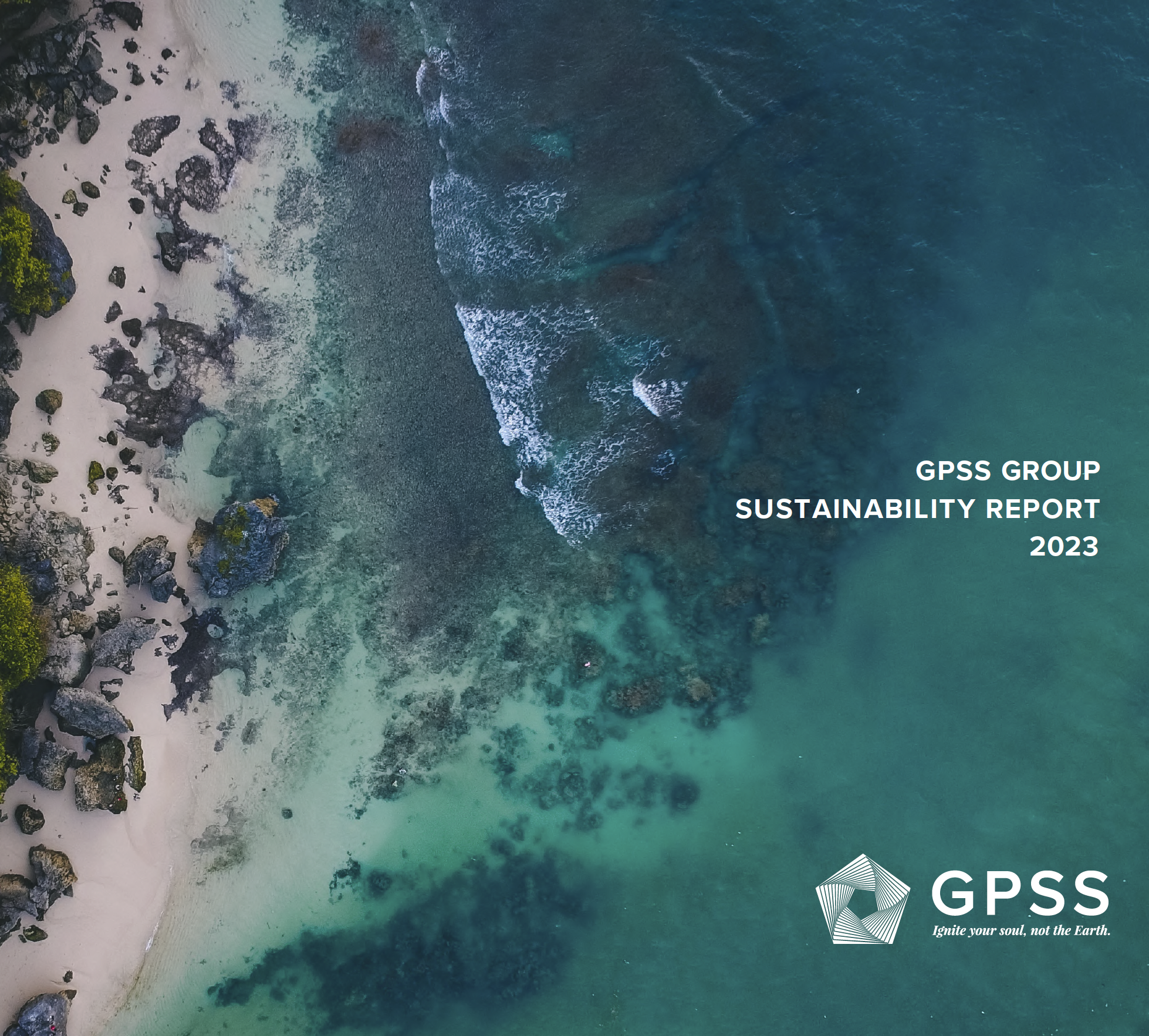
External Evaluation
GPSS Voluntarily Responded to CDP in 2022 and 2023
Carbon Disclosure Project (CDP) is a non-governmental organization (NGO) managed by a UK-based charity that operates a global disclosure system for investors, companies, nations, regions, and cities to manage their environmental impacts.
In 2022, GPSS voluntarily answered the CDP questionnaire, demonstrating its commitment to strengthening its response to climate change. Additionally, in the 2023 CDP Climate Change Questionnaire, GPSS provided comprehensive information not only on greenhouse gas (GHG) emissions data but also on governance, risk and opportunity assessments, and business strategies.
CDP Website

GPSS Achieved the Highest 5-Star Rating in 2020 and 2021
GRESB is an annual benchmark assessment that measures the environmental, social and governance (ESG) aspect of real asset investments. It was founded in 2009, led by a group of major European pension funds that initiated the Principles for Responsible Investment (PRI).
Launched in 2016, the GRESB Infrastructure is the only benchmark in the infrastructure sector that provides ESG assessments on an invest-able fund-by-fund basis and consists of two types of assessments: Fund Assessment and Asset Assessment.
GPSS has been awarded the highest 5-star rating for two consecutive years, 2020 and 2021, which is a testament to the industry-leading ESG initiatives, and growth of GPSS Holdings and its group companies as a whole. It reflects the company's commitment to responsible investment and sustainability.
GRESB Website

Highest "Green 1 (F)" Rating Awarded to GPSS
GPSS Holdings Co., Ltd. has been awarded the highest rank of "Green1 (F)" by the Japan Credit Rating Agency, Ltd. (JCR), for establishing the first Green Finance Framework. Specifically based on the JCR Green Finance Evaluation Method, GPSS Holdings' "Greenness Evaluation (Use of Funds)" is set to "g1 (F)" and its "Management / Operation / Transparency Evaluation" is set to "m1 (F)".
As a result, the highest rating was awarded via a comprehensive evaluation.
This framework is a policy that describes the philosophy and procedures of GPSS Holdings' Green Finance (issuing green bonds and borrowing green loans based on this framework). Specifically, GPSS Holdings will raise funds through Green Finance, which is stipulated for use in projects that have a positive effect/ improvement on the environment.

Memberships

GPSS joined Long Term Infrastructure Investors Association (LTIIA). Their vision is to facilitate and promote private investment in infrastructure which enables long-term, sustainable development of communities, countries and regions.
LTIIA Website

The " Foundation Guardian Forest Project Public Interest, Inc." is modeled after the "Guardian Forest" that saved people's lives during the Great Eastern (Kanto) Japan Earthquake, and the Great Hanshin Earthquake, and prepared a regional green infrastructure to coexist with nature. We are engaged in forest-building activities to protect the community and livelihoods from disasters. For more information, please visit the Guardian Forest Project website.
Guardian Forest Project website

We are a member of the Renewable Energy Association for Sustainable Power supply or REASP, a business organization that aims to promote renewable energy as a main power source and to ensure the long-term stable supply of affordable clean power. For more information,
please visit the REASP website.
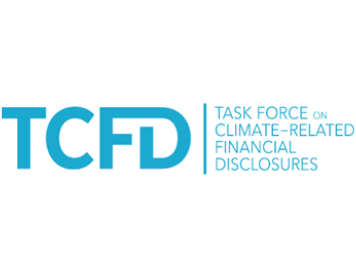
GPSS supports the Task Force on Climate-related Financial Disclosure (TCFD). TCFD aims to encourage companies and stakeholders to assess and disclose the financial impacts of climate change risks and opportunities on their operations. The framework seeks to enhance transparency, understanding, and decision-making regarding climate-related risks in financial markets, ultimately facilitating better capital allocation towards a sustainable and resilient economy.
TCFD Website

We are a member of the Taskforce on Nature-related Financial Disclosures (TNFD) Forum. TNFD is an international initiative aiming to shift the global flow of funds to nature-positive investments through disclosure of information related to the natural environment and biodiversity. The TNFD Forum is an organization that shares information related to TNFD and provides support for the development of the framework.
TNFD Website
Social Activities
We are actively engaged in social activities, aiming to create a positive impact on local communities and the natural environment in pursuit of a sustainable society. Additionally, we strive to foster a corporate culture where employees can independently plan and participate in social activities.
Past Activities
-
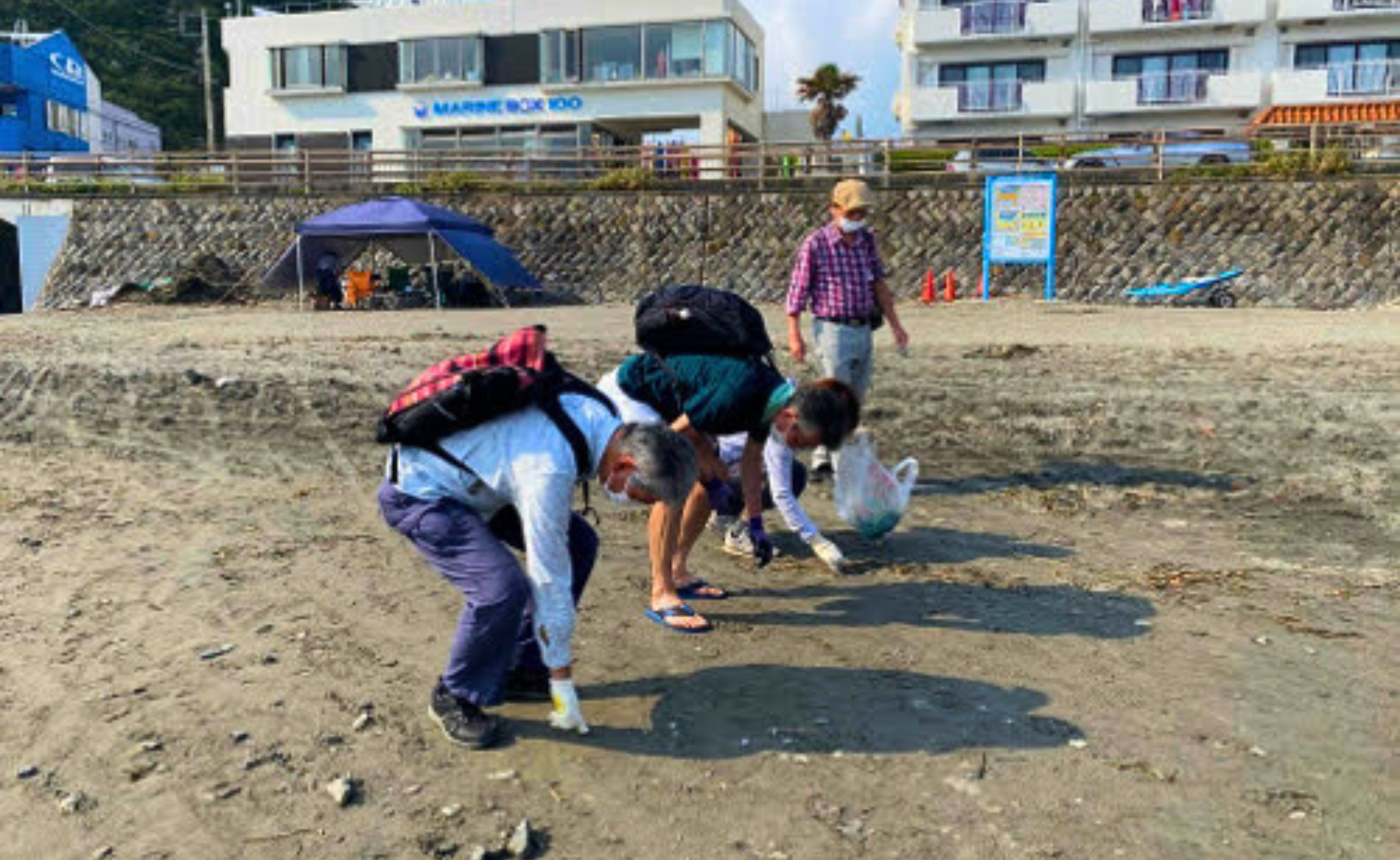
Beach Cleanup Day
To protect the local natural environment, we implemented activities suggested by employees that can be practiced in our surroundings.
-
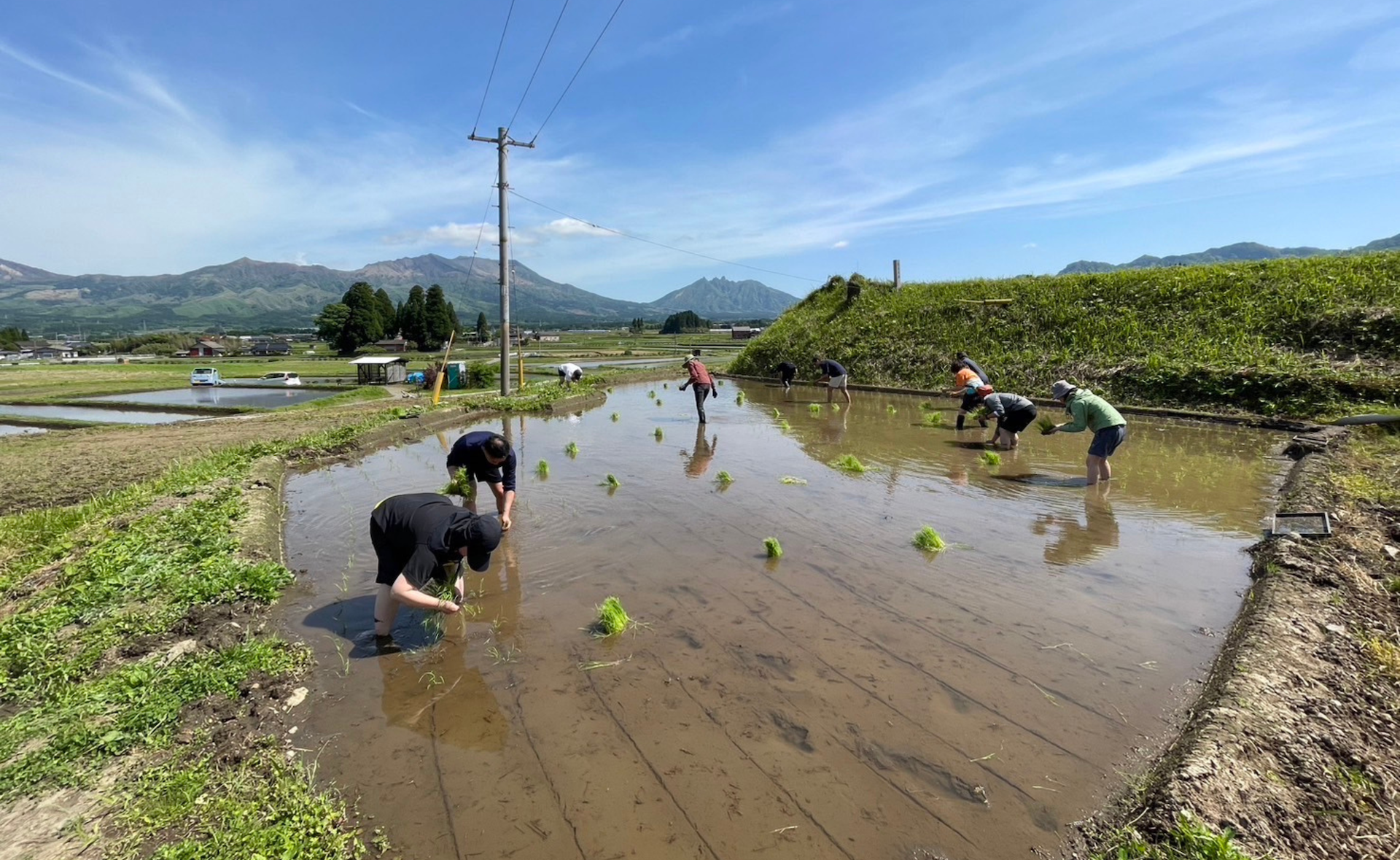
Rice Paddy Maintenance
We participate annually in activities to maintain the water source environment in Minamiaso, Kyushu. Here, we continue rice cultivation in abandoned farm fields that have lost their farmers due to population decline caused by low birth rates and an aging population.
-
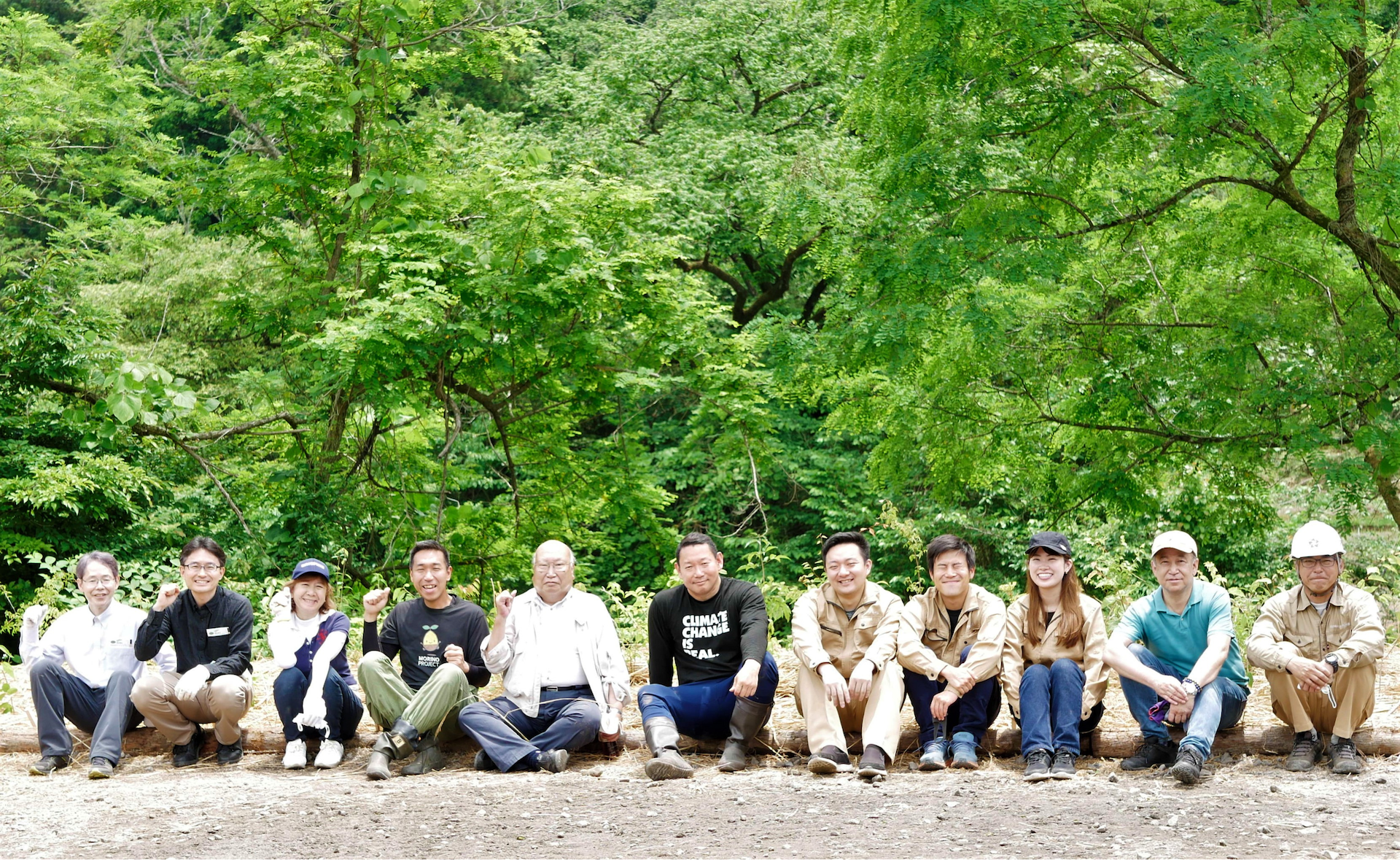
MORINO PROJECT
We participated in activities to nurture "Guardian Forests" (evergreen broad-leaved forests), to protect ecosystems, biodiversity, and local areas from natural disasters.
MORINO PROJECT Site

